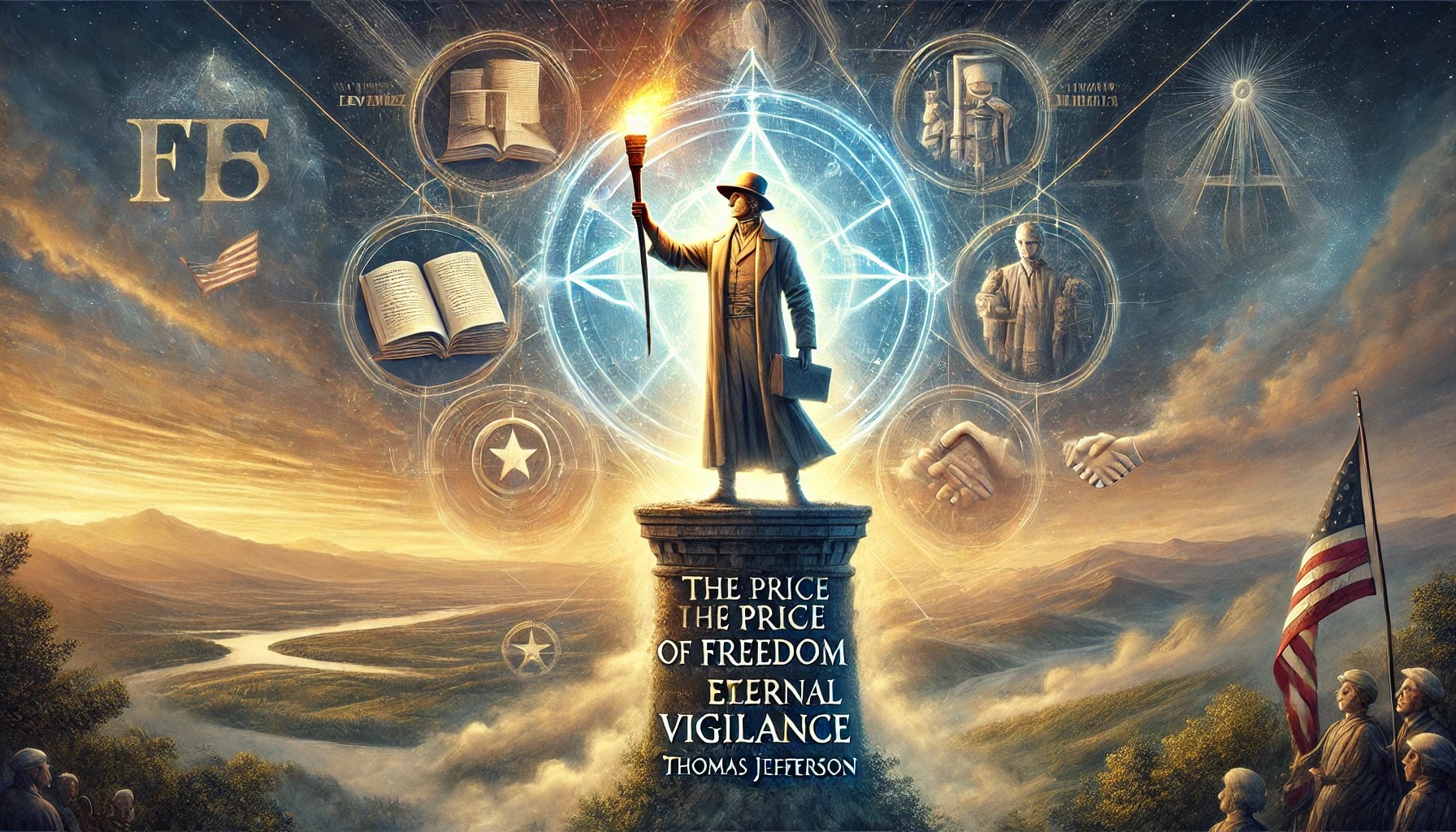
🌈 “The price of freedom is eternal vigilance.”
Description: Thomas Jefferson
Source: White House Historical Association
Author: Rembrandt Peale (1778–1860)
On this day, let’s remember that maintaining our freedoms requires constant awareness and effort. Appreciate the personal, social, and political freedoms you have, and stay vigilant in protecting them. 🌟✨
Take a moment today to reflect on the importance of safeguarding your freedoms. Recognize the efforts of those who have fought to secure these liberties and commit to being an active guardian of your rights. 🌍💪
Be inspired by Thomas Jefferson’s words and stay alert to any threats to freedom. Encourage others to join you in this vigilance, fostering a community where liberty is always protected and cherished. Together, we can ensure that freedom remains strong and enduring. 🌈🕊️
Thomas Jefferson, born on April 13, 1743, in Shadwell, Virginia, was a founding father of the United States and the principal author of the Declaration of Independence. He served as the third President of the United States from 1801 to 1809 and is widely regarded for his contributions to American democracy and political philosophy.
Jefferson was born into a prominent Virginia family and received an excellent education, studying at the College of William and Mary. He became a lawyer and soon entered politics, serving in the Virginia House of Burgesses. His intellectual prowess and eloquence made him a leading figure in the American Revolutionary movement.
In 1776, Jefferson was tasked with drafting the Declaration of Independence, articulating the colonies’ reasons for seeking independence from Britain. The document’s assertion that “all men are created equal” and have the right to “life, liberty, and the pursuit of happiness” became foundational principles of American democracy.
Jefferson’s political career continued to flourish. He served as the Governor of Virginia, the U.S. Minister to France, the first Secretary of State under President George Washington, and Vice President under John Adams. In 1801, he was elected President, and his administration was marked by significant achievements, including the Louisiana Purchase in 1803, which doubled the size of the United States, and the Lewis and Clark Expedition, which explored the western territories.
A strong advocate for individual rights and limited government, Jefferson championed the separation of church and state, freedom of speech, and education. He founded the University of Virginia, reflecting his belief in the power of education to cultivate an informed and engaged citizenry.
Despite his accomplishments, Jefferson’s legacy is complicated by his ownership of slaves and his contradictory views on slavery. He publicly condemned the institution yet enslaved over 600 people throughout his lifetime, including Sally Hemings, with whom he had several children.
Jefferson retired to Monticello, his estate in Virginia, where he continued to engage in intellectual pursuits until his death on July 4, 1826, the 50th anniversary of the Declaration of Independence. His influence on American political thought and democratic ideals remains profound, making him one of the most significant figures in U.S. history.